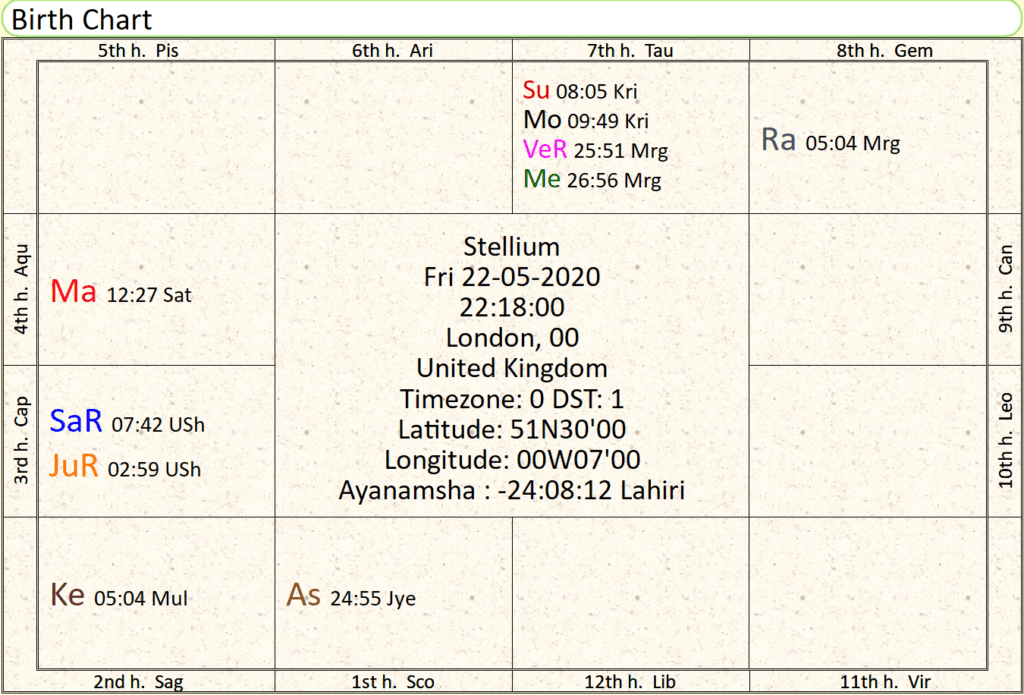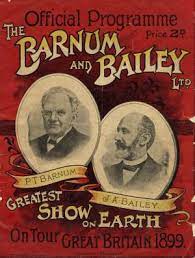
If you have ever read an article about your astrological sign only to find you don’t feel that the characteristics listed really describe you, know that you’re not alone. We conducted a poll of 70 persons with stated interests in Western Astrology and asked how much they identified with their Sun sign. This represents the zodiac sign where the Sun was positioned at the time of your birth. Nearly 40% indicated that they only identified with half or fewer of the traits described for their astrological Sun sign.
Why don’t people identify with their astrological signs? Let’s find out.
1. You are unaware that you have more than one astrological sign
If a person is asked to identify their astrological sign, most people in the Western Hemisphere will respond with their Sun sign. The same question would elicit a more varied response in the Eastern Hemisphere. The difference is due to the types of astrological systems in use. The Western Hemisphere is dominated by the Western Astrology system and focuses on the Sun sign, while the Eastern Hemisphere is dominated by other systems, most notably the Vedic (Hindu) Astrology system that centers on the Ascendant sign. It is represented by the sign rising over the eastern horizon at the time of your birth.
that centers on the Ascendant sign. It is represented by the sign rising over the eastern horizon at the time of your birth.
It is not useful to debate whether the Vedic or Western system is the best. Both have stood the test of time and are used extensively. There are other astrological systems in use as well. Among these are the Chinese, Celtic (Druid), Mayan, and Egyptian systems. Each has its own areas of focus and methods. The point is that you will have a different astrological sign depending upon which system of Astrology you use. Put a different way, you have many zodiac signs, not just one. I explore this topic in greater detail in my article: How Can I Find Out What My Astrological Sign Is?
Although you might not identify with your Sun sign, you may find that you relate more to your Ascendant or Moon sign. Western Astrology recognized this in the 20th century and began using a person’s Moon and Ascendant signs in addition to the Sun sign in order to augment their understanding of a person’s psychological complexity. The Moon always has had a prominent role in Vedic Astrology.
At the beginning of this article, we reported on a study that we conducted with 70 individuals with stated interests in Western Astrology. Of these, 40% said that they identified with half or fewer of the characteristics described for their Sun sign. However, when this same group of people was asked to take into consideration their Moon and Ascendant signs, along with their Sun sign, only 5% said that they still did not identify with the characteristics of their signs.
2. You Have a Stellium in Your Natal Chart
Your natal chart is based upon the date, exact time, and place of your birth. This identifies your Ascendant sign in Vedic Astrology, which occupies the position of the first house
is based upon the date, exact time, and place of your birth. This identifies your Ascendant sign in Vedic Astrology, which occupies the position of the first house on your chart. Each of the twelve houses in your natal chart has a corresponding zodiac sign and is organized on a grid (see below). The configuration of the planets at the time and place of your birth, along with other important information, is superimposed onto this grid to yield your basic natal chart.
on your chart. Each of the twelve houses in your natal chart has a corresponding zodiac sign and is organized on a grid (see below). The configuration of the planets at the time and place of your birth, along with other important information, is superimposed onto this grid to yield your basic natal chart.
If three or more planets are clustered around a sign in one house, then you have a stellium. In the chart below, a stellium consisting of four planets (Sun, Moon, Venus, Mercury) is located in the 7th house (Taurus). The ascendant sign (As) is Scorpio (1st house). Your stellium sign will exert an influence on your chart and you may find that you exhibit a number of characteristics that are associated with it. This potentially could cause you to relate more to your stellium sign than to your ascendant sign. For example, in the chart below, the person might relate more to characteristics associated with Taurus than those ascribed to Scorpio (their ascendant sign).

3. Traits of Zodiac Signs Describe a Fictitious Person
We’ve all seen articles that discuss positive and negative traits/characteristics associated with our respective astrological signs. Some characteristics describe us fairly well, others we do not relate to at all, and still others we are ambivalent about. If you do not relate to some of the traits ascribed to your astrological sign, don’t worry. There is nothing “wrong” with you. There is nothing “wrong” with the accuracy of Astrology either.
Why?
Let’s consider how the lists of traits and characteristics for zodiac signs were developed in the first place. They have emerged out of interactions and observations of people whose zodiac signs were known. These observations were compiled and revised over a long period of time to yield the lists that we see today.
Knowing this information, we can conclude that the published lists of characteristics are not designed to describe you personally. How could they? The observations were not conducted on you. Instead, the lists depict trends observed for a large number of individuals with the same zodiac sign. But a trend, by definition, does not represent 100% of the individuals that are observed. It simply identifies a general direction of data. It could mean that 30% of individuals observed exhibited a certain trait regularly; alternatively, it could be 50%, 75%, or higher. In fact, there is no scientifically agreed-upon value or cutoff that defines a trend. However, it cannot be 100%. That would be an absolute and not a trend.
All of this means that significant numbers of people will not exhibit a given trait ascribed to their astrological sign. That is to be expected. For example, my ascendant sign is Sagittarius . According to the lists of traits and characteristics, I am supposed to be outgoing. However, I am introverted and avoid social situations as much as possible. Does this mean that I am not legitimately Sagittarius? Absolutely not! It simply means that I don’t fit the trend (whatever it is) for that trait.
. According to the lists of traits and characteristics, I am supposed to be outgoing. However, I am introverted and avoid social situations as much as possible. Does this mean that I am not legitimately Sagittarius? Absolutely not! It simply means that I don’t fit the trend (whatever it is) for that trait.
It is important to understand that the lists of traits and characteristics for the various zodiac signs paint a picture of a fictitious composite individual. Few, if any, people actually embody all of the characteristics ascribed to their zodiac sign, and certainly, none exhibit them all of the time, 24-hours per day. We are individuals, not composites.
4. Other Planets Aspect Your Ascendant, Moon, or Sun

The term aspect in Astrology refers to angles in which planets coincide in your birth chart. The angles can create squares or triangles. Squares represent more conflicting energy between the planets involved. Triangles, which are referred to as trine, represent a more harmonious connection than a square. The chart to the right shows an example of a natal chart in the Western Astrology system. Lines in the inner circle represent aspects among planets. The yellow triangle highlights one of several trines in the chart.
Conjunctions and oppositions also occur and are important to consider. A conjunction is when two or more planets are in close proximity in the natal chart. An opposition occurs when two or more planets are on opposite sides of the chart.
All of these aspects can greatly affect the expression of your ascendant sign, the Moon, or the Sun, which in turn could influence how you relate to it.
5. Personality Traits Emerge and Develop Over Time
Although it may seem obvious that the full complement of our personality traits is not established at birth, persons interested in Astrology as amateurs or non-experts (Astrolophiles) typically behave as if they do. This can cause many problems in the interpretation of a horoscope.
People comb the internet and other sources for information about their zodiac sign and behave as if 100% of the characteristics described should apply to them or else something is awry, either with themselves or the information source. This is not surprising because even science had a deterministic view of personality, although not as extreme as it was established at birth. Until only recently, science believed that our personalities were fixed by the time we reached about 30 years old.


We now understand that our personalities, and their accompanying values and opinions, are fluid and malleable over the lifetime. For example, psychologist Dr. Art Markman notes that our values are influenced by the tasks that we perform at different life stages [source ]. Moreover, research conducted by psychologist Dr. Kristin Laurin has found that previously held steadfast opinions can modify over short periods of time. She cites the 2014 ban on plastic bottles in the city of San Francisco (USA) as an example. There was strong opposition before the ban. However, as little as one day after the ban, attitudes had changed and people were less opposed to it. Laurin explains that people tend to rationalize things that they feel stuck with. We liberate brain space to proceed with our lives by deciding that the change is not so bad [source
]. Moreover, research conducted by psychologist Dr. Kristin Laurin has found that previously held steadfast opinions can modify over short periods of time. She cites the 2014 ban on plastic bottles in the city of San Francisco (USA) as an example. There was strong opposition before the ban. However, as little as one day after the ban, attitudes had changed and people were less opposed to it. Laurin explains that people tend to rationalize things that they feel stuck with. We liberate brain space to proceed with our lives by deciding that the change is not so bad [source ].
].
Research conducted by Dr. René Mõttus and colleagues at the University of Edinburgh (Scotland) suggests that people go through a process of personality maturation as they age. Traits tend to modify over time in a positive direction and include the following.

- More altruistic
- More conscientious
- More trusting
- Less neurotic
- Less Machiavellian
- More agreeable
- Less narcissistic
- Less psychopathy
- Less substance abuse
- Better sense of humor
- More control of emotions
Taken together, these and other research studies indicate that personality traits are not fixed, that they change over time, and are strongly influenced by life experience. Therefore, our reaction to characteristics associated with our astrological sign likely would be different depending upon how old we are. We might outright reject certain characteristics at 20-years old that we could see in a different light and wind up embracing at age 50 years and vice versa. If you find that you do not relate to your astrological sign today, give yourself time. You might just relate to it better sometime in the future.
6. You Have Competing Elements in Your Natal Chart
In Vedic Astrology, there are five elemental vibrations that comprise all material bodies and form the basis of our reality. They are Earth (Prthvi), Water (Jala), Fire (Agni), Air (Vāju), and Ether (Ākāsa). Four of these elements (Earth, Water, Fire, and Air) are associated with three zodiac signs each (see table). Ether is the mother of the other elements. It pervades all of the signs and represents Vishnu, the preserver, and protector of the universe. For more information about the elements, I recommend the article: 5 Fundamental Concepts in Vedic Astrology .
.
| Element | Zodiac Signs | Planet |
|---|---|---|
| Earth (Prthvi) | Taurus , Virgo , Virgo , Capricorn , Capricorn | Mercury |
| Water (Jala) | Cancer , Scorpio , Scorpio , Pisces , Pisces | Venus |
| Fire (Agni) | Aries , Leo , Leo , Sagittarius , Sagittarius | Mars |
| Air (Vāju) | Gemini , Libra , Libra , Aquarius , Aquarius | Saturn |
| Ether (Ākāsa) | All | Jupiter |
Let’s suppose that your ascendant sign is Pisces. As a water element sign, Pisces is emotionally natured. However, your natal chart reveals that you have several planets that fall into houses associated with air signs. These are less emotionally driven and are more intellectual and detached. This would make the element of air more dominant in your chart. Consequently, you might feel less like your Pisces sign and identify more with air signs, such as Aquarius, Gemini, or Libra.
7. You Have a Reverse-Barnum Effect

P. T. Barnum was a renowned showman and scam artist of the 19th century and is best known for co-founding the Barnum and Bailey Greatest Show on Earth (later shortened to the Barnum and Bailey Circus) that toured the world. Known for promoting outlandish hoaxes, Barnum also is credited with the adage: There is a sucker born every minute (although it is debatable that he actually said this).
To understand the reverse-Barnum effect, we must first learn about the Barnum effect. The Barnum effect occurs when people ascribe significant meaning to imprecise or untrue statements and vaguely articulated ideologies.
A contemporary example of the Barnum effect is the QAnon conspiracy theory. It argues that the world is controlled by a cabal of Satanic, cannibalistic pedophiles who operate a global child sex trafficking ring. The theory further alleges that former president of the United States Donald J. Trump will save the world in a day of reckoning known as the “storm,” when thousands of members of the cabal will be arrested. Any reasonable person would say that the QAnon theory is preposterous and unfounded. However, it is advocated and believed by a substantial minority of individuals in the USA and elsewhere.
Because the proof that QAnon offers to support their accusations either is non-existent or intentionally convoluted and based on dubious assumptions, people tend to superimpose their own personal meaning and experiences on the assertions, making them powerfully meaningful.
The following three features explain the Barnum effect.
- Human beings want to be insiders, rather than outsiders. People have a general tendency to “go with the flow” of the group rather than opposing it, even when they are uncomfortable with the group’s direction.
- The human brain tends to attach personal and significant meaning to general statements.
- People are more likely to view positive comments as relevant to themselves even if they are untrue and are less apt to accept critical ones even if they are true.
In Astrology, the Barnum effect might manifest when an individual enthusiastically endorses a list of vaguely defined characteristics associated with their astrological sign as “describing them perfectly” without giving adequate contemplation to the possibility. This would be reinforced if the person was part of a group that also made similar endorsements of the signs.
The reverse-Barnum effect is when a person expresses skepticism or disbelief about statements that are adequately supported or there is no reason to suspect that they are untrue. These individuals often are described as “professional cynics and antagonists,” meaning that they sometimes will adopt a contrary position just for the sake of doing it.
In Astrology, six zodiac signs are more likely to exhibit the reverse-Barnum effect to some degree. These are the earth signs Taurus, Virgo, and Capricorn, along with the fire signs Aries and Leo and the water sign Scorpio. These signs are grounded (earth signs) or overly confident and are not likely to accept anything at face value. Even when presented with convincing evidence, they will ruminate over a statement and pick it apart until they can find an exception to it, regardless of how rare it might be.
It should come as no surprise that people exhibiting the reverse-Barnum effect would be skeptical about any description of personal characteristics ascribed to their zodiac sign. In fact, they might show skepticism about their zodiac sign in the first place or Astrology in general!
Acknowledgements
Headline photo by Sammy Williams on Unsplash
Recent Content
Las cartas divisionales permiten una mayor claridad al estudiar los aspectos de la vida de una Carta Natal. Ilumina lo que está escondido, es como tener una lupa por la que podemos tener más...
La Carta Natal no es tan solo una gráfica con los nombres de los planetas escritos con un significado en particular, como lo sería escribir en una hoja de papel la fórmula 25+30=55. Los...
